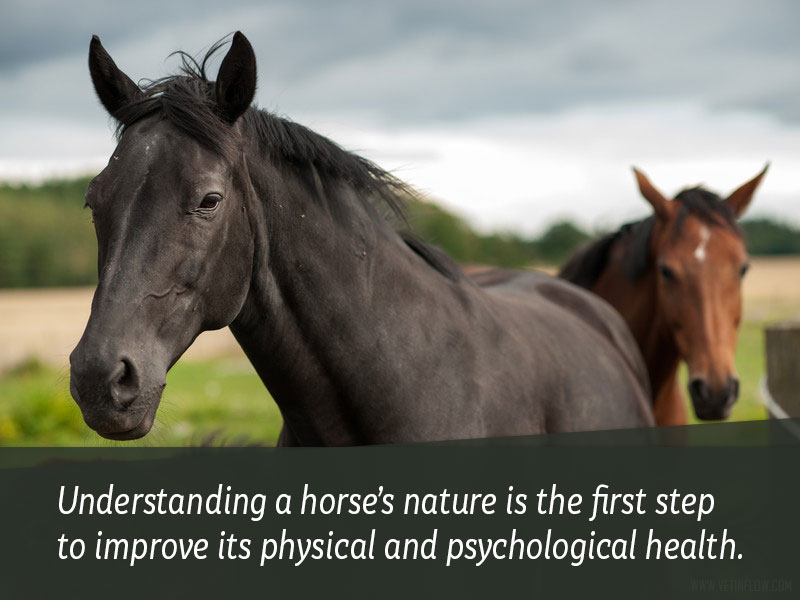
Understanding a horses nature is the first step to improve its physical and psychological health

The best way to improve your horse's quality of life and general health is to understand its nature and, weather a horse is stabled, living outside or in a combination of both, to provide a suitable environment that will fulfil their needs and promote natural behaviour.
Horses are social animals that enjoy more than anything the freedom to graze, to interact with each other and to be able to quickly escape if they don't feel safe. In the wild, horses frequently interact with other horses and live in herds, spending most of their time (14-16 hours) wandering over wide areas foraging for food.
Their main concern is to be able to escape any possible predators so they are almost always active and alert. They enjoy wide open spaces because it allows them to clearly see what is going on around them and because it gives them the room they need to quickly run away if they feel threatened, scared of just uncomfortable. This is not only important to escape predators but it is also important for their social interactions, as they can decide to be around their equine companions or to just have a few moments alone.
It is essential for the health of a horse's digestive system to have a high fibre content diet (such as grass and hay) provided in regular, small amounts. Food intake should be regulated to maintain a horse's ideal weight, but any selected diet plan must keep this in mind.
Most horses, ponies and donkeys are extremely sociable and it is highly recommended for them to have companions to interact with. Other key elements include appropriate shelter, fresh water, mineral licks, extra feed if necessary and regular health care, which includes vaccinations, a worming plan and regular foot trimming and dental checks.
The size of a stable is also very important for a horse and as a general rule, the bigger the better. It should allow for the horse to turn around, to lie down and even to roll if they want to. Good ventilation is essential to prevent breathing problems. Large stables will not only provide better air circulation but will also reduce stress levels and allow you to accommodate more than one horse, pony or donkey if necessary.
A stable with good visibility, good air flow and natural light can also help reduce stress. Horses will feel more relaxed if they are able to watch, listen and smell things around them and on the outside, as this gives them something to do instead of feeling isolated and bored.
They will also benefit to be placed near their best friend, especially if they can easily see and touch each other, avoiding stress related with separation anxiety.
Stress, anxiety and depression in horses can affect performance, lead to weight loss and contribute to other serious diseases such as colic and laminitis. It can also interfere with the recovery process of an injury or disease.
A horse's environment is key for its mental well-being and physical health.
Would you like to know more about horses? Check our Equine Courses:
Equine courses
Published: 18 Mar 2015
Read the previous article: How much do you know about fleas? Protect your pet and your home!

